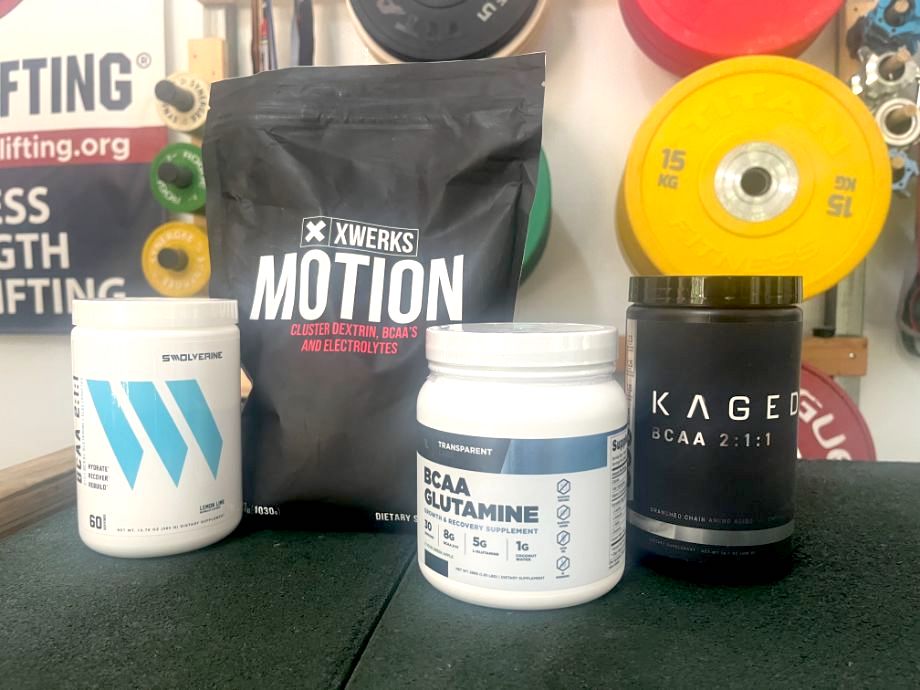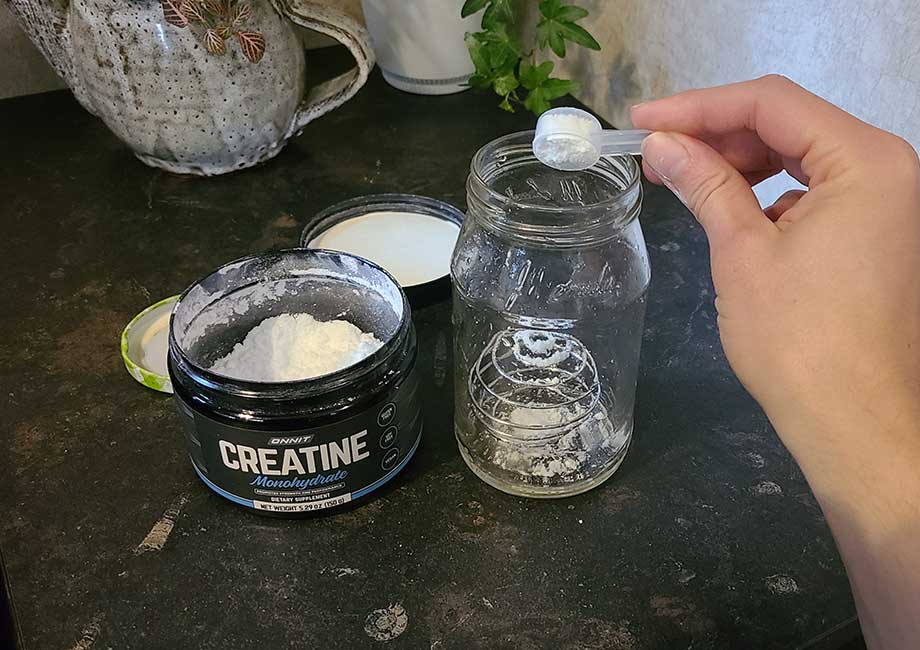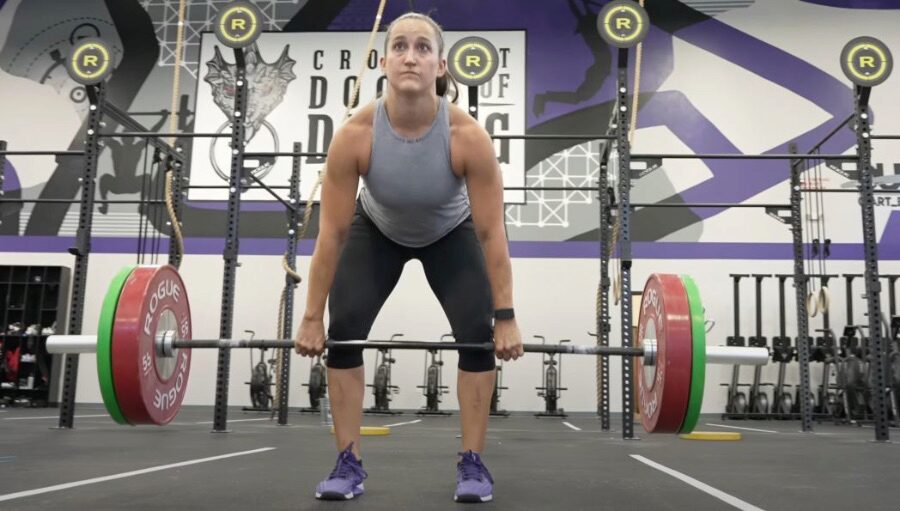As a sports dietitian who has monitored, examined, and dispensed countless supplements while working with college and professional athletes, I have a lot of thoughts about how and when to take BCAA supplements. Amino acids, in general, are a non-negotiable part of anyone’s diet if they lift weights. Plenty of bodybuilders will tell you they don’t leave the house without their BCAAs.
Do I think they’re that valuable? No. Your highest nutritional priorities should always be on the quality of the foods you’re eating, the makeup of the protein sources you choose, and the overall quality of your diet. If you’re slacking on these details, no supplement is going to help you meet your fitness goals, even if it has the reputation of doing so.
Here’s the only problem: While BCAAs are readily available in the best protein sources, like lean meat, eggs, and dairy, the specific amino acid content of these foods isn’t always clear and certainly isn’t labeled. And some of us don’t want to spend all day eating heaps of animal protein, or we don’t eat animal products at all. A BCAA supplement can help you feel like you’re covering your bases, especially if you’re vegan, vegetarian, or are on a low-calorie diet.
If you’re nodding your head right now, here’s everything you need to know about when to take BCAA supplements.
Medical disclaimer: This article is intended for educational and informational purposes only. It is not intended as a substitute for medical advice. For health advice, contact a licensed healthcare provider.
What Are BCAAs?
BCAA stands for “branched-chain amino acids.” You may have heard that amino acids are the building blocks of protein, but that doesn’t just refer to the protein you eat. BCAAs1 actually comprise 35% of the total amino acid content in all muscle tissue. So yeah, they’re important.
With this fact in mind, it comes as no surprise that BCAA supplements have become incredibly popular in the fitness world. However, many sports dietitians believe the benefits of BCAA supplements are way overhyped, and I’m one of them. They’re definitely not mandatory to meet your fitness goals, as some would have you believe.
That said, if you’re looking for strength, muscle-building, performance improvements, and better muscle recovery, getting BCAAs from somewhere is essential in order to achieve these goals.
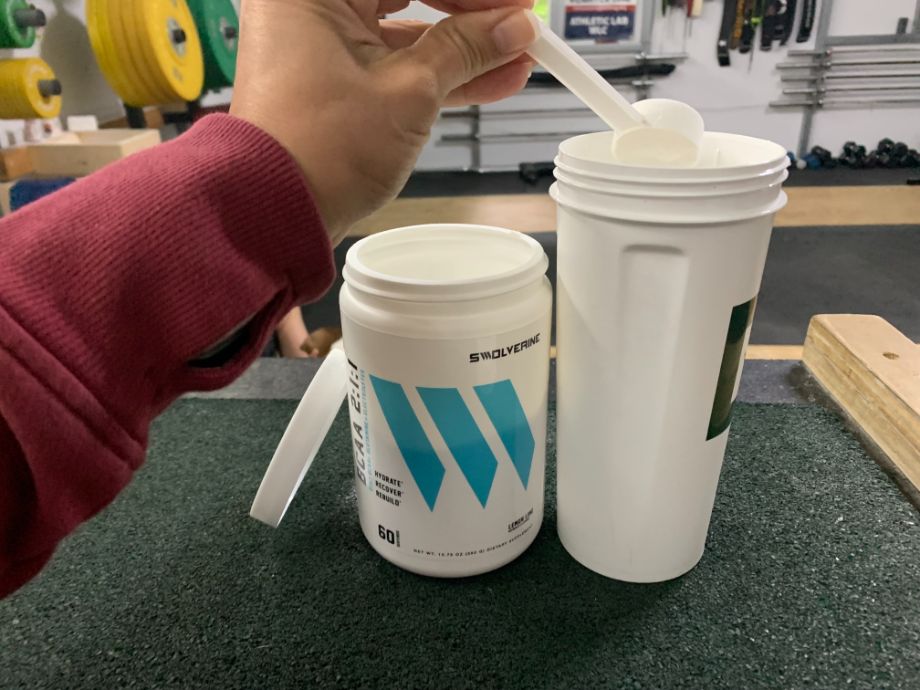
However, the branched-chain amino acids of leucine, isoleucine, and valine are only three of the nine so-called “essential amino acids,” or EAAs, that your body needs. So what makes them special compared to the other six? Well, scientists have determined that these three have a unique ability to “turn on” protein synthesis in a way the other EAAs cannot. Let’s explore how they work.
Leucine
If the muscle-building game was football, leucine would be Tom Brady. Sure, the other amino acids help to get the job done, but they can’t win without their quarterback.
Studies have shown that leucine plays an important role in muscle-building because of the ability it has to activate a metabolic process called the mTOR pathway2. mTOR is responsible for triggering the growth of new skeletal muscle, and also muscle repair.
Isoleucine
The exact mechanism by which isoleucine supports muscle protein synthesis isn’t quite as clear as it is for leucine.
However, studies indicate that this amino acid helps leucine do its job more effectively, and also increases the uptake of glucose into muscle tissue. Besides preventing muscle catabolism, this can also help you to lift heavier, or for a longer period of time, thanks to the extra energy your muscles will receive. Both of these benefits can indirectly help produce muscle growth.
Valine
On its own, valine doesn’t do much to produce muscle growth. So why include it in the BCAAs? If the BCAAs are consumed in an appropriate ratio of 2:1:1 leucine to isoleucine and valine, valine supports the major functions of its partners in crime.
Benefits of BCAAs
As a specialist in sports nutrition, the most common reason I prescribe a BCAA supplement is if, for some reason, an athlete is struggling to get enough high-quality, complete protein from food.

A good example of this would be vegan or vegetarian athletes. When compared to animal sources of protein, even the best vegan protein powder often lack essential amino acids, or they have a suboptimal amino acid profile when compared to animal sources. As a result, it can be very challenging for people who follow a plant-based diet to get the amino acids necessary3 for optimal athletic performance from food alone.
For vegan bodybuilders, a vegan BCAA supplement can come in handy to ensure that they’re intaking the right amount of quality amino acids while still experiencing the benefits of plant-based protein.
When Is The Best Time to Take BCAAs?
Studies have shown that BCAA levels in your blood peak just 30 minutes after you take a dose. But that doesn’t mean you need to take them exactly at that time.
Far more research4 has concluded that the total amount of leucine you consume in a day is more important than what time you take it. This means you can take amino acids at any time to experience their benefits. Whenever you take it, get at least 5 grams of BCAAs total, in a 2:1:1 ratio of leucine, isoleucine, and valine according to research5. Your body weight will affect how many BCAAs to take, but this is a good starting estimate for the average person.
However, if you have particularly long or intense workouts, or you are in a low-calorie phase of your training, there are some potential benefits to taking BCAAs before, during, or after workouts.
Benefits of Taking BCAAs Before a Workout
Some studies have shown that taking a pre-workout with BCAAs can help prevent muscle loss, especially if you are in a calorie deficit.
For example, a 2016 study6 of 17 male athletes aged 21 to 28 determined BCAA supplements allowed them to maintain lean muscle, preserve muscle mass, and lose fat mass while engaged in resistance training.
RELATED: Best BCAA for Men
The researchers divided the men into two groups, one taking branched-chain amino acids and one taking only carbohydrates pre-workout. When the carbohydrate group participated in bodybuilding-style workouts and ate in a calorie deficit, they lost body fat but lost muscle mass as well. On the other hand, the BCAA group only lost body fat, and they retained more muscle mass.
Benefits of Taking BCAAs During a Workout
Serotonin is a hormone that naturally rises in response to exercise. However, if the levels get too high, it can cause muscle fatigue, especially during long-duration endurance training.

Some sports nutrition studies7 have suggested that BCAAs can lower the concentration of serotonin in the body, particularly when performing endurance training for more than an hour. It’s unclear if you can get the same benefits during shorter bouts of training. Additionally, there is no evidence that BCAAs have any impact on resistance training performance when supplementing during the workout.
Benefits of Taking BCAAs After a Workout
A 2017 study8 suggested that, due to the ability of BCAAs to reduce muscle damage and loss of strength, having BCAAs post-exercise is associated with better muscle recovery. Another study9 also found that athletes who took BCAA powder after intensive endurance training experienced less muscle soreness and fatigue than those taking a placebo. This is sweet news for those looking for a post-workout supplement to help them recover better.
RELATED: Best Muscle Recovery Supplements
But how do BCAAs help exactly? It may be that the branched-chain amino acids reduce muscle damage associated with intense training. This could help combat delayed-onset muscle soreness, also known as DOMS, letting you exercise more frequently.
BCAAs and Type of Training
BCAAs may have benefits of different types of training. Let’s dig deeper.
Benefits of Taking BCAAs for Strength Training
This part is for anyone looking to build muscle, or get the most muscle gain out of the least calories. As well as being able to accelerate muscle protein synthesis, leucine inhibits muscle breakdown through the mTOR pathway10. Without boring you too much with the sciency talk, I’ll just say that this pathway cannot operate without the presence of leucine. Basically: minimal leucine, minimal anabolic potential.
You can absolutely get adequate aminos from other supplements like the best whey protein protein powder, which is loaded with fast-digesting leucine. However, if you want to be sure you’re at optimal levels, you can take a BCAA supplement to be more certain.
RELATED: Best BCAA for Women
Benefits of Taking BCAAs for Cardio Exercise
We’ve already gone over how BCAAs can help prevent exercise fatigue during endurance training, so here’s the second-most common reason a dietitian might tell you to take a BCAA supplement: fasted cardio.
Some studies11 suggest that fasted training (exercising on an empty stomach) may have a greater effect on fat loss than fed training. There’s plenty of debate over this idea, but it hasn’t stopped the fitness community from (literally) running with it.
Here’s the part that too many people overlook: By exercising without any fuel in your muscles, you’re putting yourself at serious risk for muscle loss.
When you’re placing a high demand on the body, but it doesn’t have adequate glycogen available to use as an energy source, it has no choice but to turn to your lean muscle. Over the long term, this can lead to a loss of muscle mass and strength.
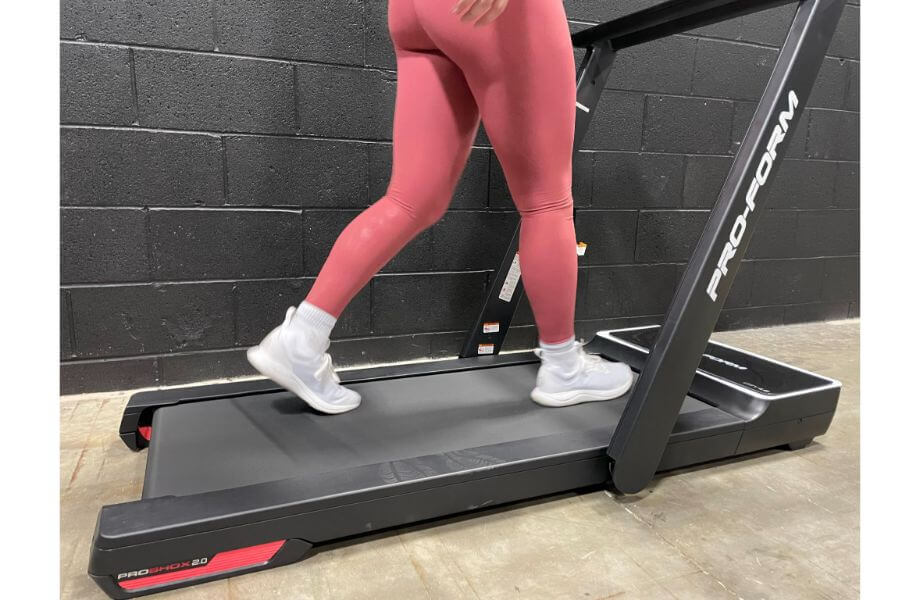
One study12 suggested that BCAAs can help prevent this. Individuals suffering from medical conditions that resulted in muscle loss were given BCAAs, and muscle catabolism was greatly reduced compared to patients who did not receive BCAAs.
BCAA Side Effects
There do not appear to be any significant side effects associated with branched-chain amino acids or essential amino acids when used as directed. However, it’s still important to pay attention to the dosing instructions and to follow them properly.
Many experts recommend that you do not add an amino acid supplement to your routine if you suffer from any type of disease that interferes with your ability to digest and process protein appropriately, such as liver disease or kidney disease. If you suffer from any of these ailments, be sure to check with your doctor before taking these or any other supplements.
Doctors also often recommended that people with diabetes refrain from taking BCAAs, since BCAAs can have a significant effect on blood sugar levels in unpredictable ways, especially when taken in high doses.
Finally, though some protein supplements can help with injuries and recovery from injuries, if you are less than two weeks out from surgery, taking BCAAs is strongly discouraged. Once again, BCAA supplements can have a huge impact on blood sugar levels before, during and after a surgery, which can pose a significant risk.
When to Take BCAAs: Final Thoughts
At the end of the day, as a sports dietitian, I recommend that you make sure your nutrition is on point first. Then you can explore what supplements to take to enhance athletic performance and change body composition. The compounds in supplements can be helpful in specific situations, but the nutrients you get from food will always be superior.
While there are some slight potential benefits to taking BCAAs at specific times, it’s more important to simply get adequate amounts of them in your diet. If slamming 5 grams of leucine-rich BCAAs in a 2:1:1 ratio before training works best for you, great. If sipping on them all day for hydration works better, do that. Neither approach is likely going to be much better than the other for the vast majority of people.
Whatever you decide to do, just be sure you consult with your nutritionist if you are unsure if you are getting a sufficient amount of amino acids due to an unconventional diet, dietary restrictions, or a calorie deficit. Also be sure to check with your doctor before starting any supplement if you suffer from a health condition or take prescription medications.
When to Take BCAAs: Q&A
Should you take BCAA every day?
When consumed in the recommended amounts, taking BCAAs daily appears to be safe for healthy individuals. If you are active, you should be getting BCAA from dietary protein every day, but you can also take the supplemental form if eating enough protein is a struggle.
Can you take BCAA on an empty stomach?
You can take BCAAs on an empty stomach, or before doing fasted cardio, but you don’t have to. If you have a sensitive stomach or are just starting out with supplementing, you may experience mild GI discomfort when taking BCAAs in the absence of a meal.
What is the proper way to take BCAA?
The time of day you take BCAAs means little unless you have specific performance goals. Whenever you take it, aim for getting at least a 5-gram dose, with leucine, isoleucine, and valine being taken in a 2:1:1 ratio.
Is BCAA better after a workout than protein?
While it depends on the brand, BCAAs and a whey protein supplement are comparable in their effectiveness as a post-exercise supplement. However, whey protein is likely to be more beneficial as it contains all nine essential amino acids, whereas BCAA supplements usually only contain leucine, isoleucine and valine.
Do I need BCAA if I take protein?
If you drink protein shakes on a regular basis, or if you eat an adequate amount of high-quality protein, you probably don’t need BCAAs. You’re getting plenty of them from the protein. Creatine monohydrate is probably a more useful “second supplement” to help you add muscle or improve your workouts.
References
1. Shimomura Y, Murakami T, Nakai N, Nagasaki M, Harris RA. Exercise promotes BCAA catabolism: effects of BCAA supplementation on skeletal muscle during exercise. J Nutr. 2004;134(6 Suppl):1583S-1587S. doi:10.1093/jn/134.6.1583S
2. Zhang S, Zeng X, Ren M, Mao X, Qiao S. Novel metabolic and physiological functions of branched chain amino acids: a review. J Anim Sci Biotechnol. 2017;8:10. Published 2017 Jan 23. doi:10.1186/s40104-016-0139-z
Stark M, Lukaszuk J, Prawitz A, Salacinski A. Protein timing and its effects on muscular hypertrophy and strength in individuals engaged in weight-training. J Int Soc Sports Nutr. 2012;9(1):54. Published 2012 Dec 14. doi:10.1186/1550-2783-9-54
3.Phillips SM. The impact of protein quality on the promotion of resistance exercise-induced changes in muscle mass. Nutr Metab (Lond). 2016;13:64. Published 2016 Sep 29. doi:10.1186/s12986-016-0124-8
4. Howatson G, Hoad M, Goodall S, Tallent J, Bell PG, French DN. Exercise-induced muscle damage is reduced in resistance-trained males by branched chain amino acids: a randomized, double-blind, placebo controlled study. J Int Soc Sports Nutr. 2012 Jul 12;9:20. doi: 10.1186/1550-2783-9-20. PMID: 22569039; PMCID: PMC3395580.
5. Brestenský, Matej & Nitrayová, S. & Patras, Peter & Heger, Jaroslav & Nitray, Jozef. (2015). Branched chain amino acids and their importance in nutrition. Journal of Microbiology Biotechnology and Food Sciences. 5. 197-202. 10.15414/jmbfs.2015.5.2.197-202.
6. Dudgeon WD, Kelley EP, Scheett TP. In a single-blind, matched group design: branched-chain amino acid supplementation and resistance training maintains lean body mass during a caloric restricted diet. J Int Soc Sports Nutr. 2016;13:1. Published 2016 Jan 5. doi:10.1186/s12970-015-0112-9
7. Kim DH, Kim SH, Jeong WS, Lee HY. Effect of BCAA intake during endurance exercises on fatigue substances, muscle damage substances, and energy metabolism substances. J Exerc Nutrition Biochem. 2013;17(4):169-180. doi:10.5717/jenb.2013.17.4.169
8. Rahimi MH, Shab-Bidar S, Mollahosseini M, Djafarian K. Branched-chain amino acid supplementation and exercise-induced muscle damage in exercise recovery: A meta-analysis of randomized clinical trials [published correction appears in Nutrition. 2017 Dec 22;:]. Nutrition. 2017;42:30-36. doi:10.1016/j.nut.2017.05.005
9. Matsumoto K, Koba T, Hamada K, Sakurai M, Higuchi T, Miyata H. Branched-chain amino acid supplementation attenuates muscle soreness, muscle damage and inflammation during an intensive training program. J Sports Med Phys Fitness. 2009;49(4):424-431.
10. Yoon MS. mTOR as a Key Regulator in Maintaining Skeletal Muscle Mass. Front Physiol. 2017;8:788. Published 2017 Oct 17. doi:10.3389/fphys.2017.00788
11. La Bounty P, Campbell B, Oetken A, Willoughby D. The effects of oral BCAAs and leucine supplementation combined with an acute lower-body resistance exercise on mTOR and 4E-BP1 activation in humans: preliminary findings. J Int Soc Sports Nutr. 2008;5(Suppl 1):P21. Published 2008 Sep 17. doi:10.1186/1550-2783-5-S1-P21
12. Phillips SM. The impact of protein quality on the promotion of resistance exercise-induced changes in muscle mass. Nutr Metab (Lond). 2016;13:64. Published 2016 Sep 29. doi:10.1186/s12986-016-0124-8


